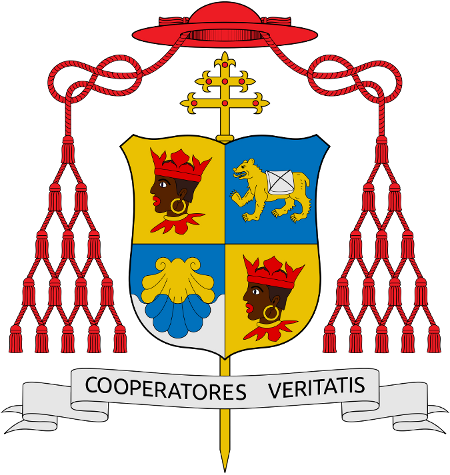 En presteblogger i England, Fr Ray Blake, har skrevet et interessant innlegg om pave Benedikt og hans vektlegging på sannheten. Han skriver bl.a.:
En presteblogger i England, Fr Ray Blake, har skrevet et interessant innlegg om pave Benedikt og hans vektlegging på sannheten. Han skriver bl.a.:
… … Truth was front and centre of the Benedictine pontificate, and along with it a certain intellectual precision and a desire to define precisely what we mean and what the Church believes. This type of precision was always at the heart of Ratzinger’s ministry, it was there in his time of Prefect of the CDF. I think a great turning point occurred with his commissioning of Cardinal Schönborn to produce the Catechism of the Catholic Church. I remember speaking to a seminarian who said, «Until the Catechism was published in 1994 we were told any old rubbish was Catholic teaching, then we were able to check for ourselves. It was amazing the effect a copy of it in a seminary class room on even the most way out lecturer». Therefore 1994 became a significant turning point, when ‘the faith’ was placed in the hands of ordinary Catholics, rather than something which was claimed by ‘specialists’. Another great turning point was Dominus Jesus in 2000 which brought precision to our christology and ecclesiology.
Benedict’s pontificate was a search for truth that animated countless Catholics, I suspect this was one of the reasons for the rise in numerous Catholic citizen journalists and the flourishing of the Catholic blogosphere. More importantly I believe that it gave rise to a culture for transparency, openness and accountability in the Church. Benedict made it possible for us to ask the simple question, «Is this true?» and to expect an answer, He gave us a point of reference to understand that there were not many truths but one Truth and that this Truth is the Incarnate Word, the 2nd Person of the Holy Trinity, Jesus Christ himself an objective and real presence that should be at the heart of the Church. For Benedict a denial of Truth was a denial of Christ himself, an obfuscation of it an obfuscation of Christ, a lack of clarity about it, a lack of clarity about Christ.
Truth for Benedict was the disinfecting sun-light, it was the answer to corruption and self-seeking within the Church, as much as it was to false teaching or to obfuscation or a lack of transparency or on a more mundane level bishops covering up child abuse, financial corruption or lobby groups, gay or otherwise, or plain heresy.
The search for Truth seems to have stimulated vocations to the priesthood, it certainly gave an impetus to Catholic intellectual life and the desire of Catholic intellectuals to teach and give ordinary Catholics an intellectual underpinning to their faith. … …
